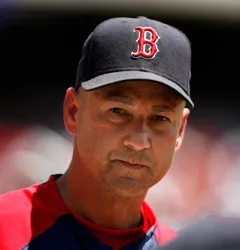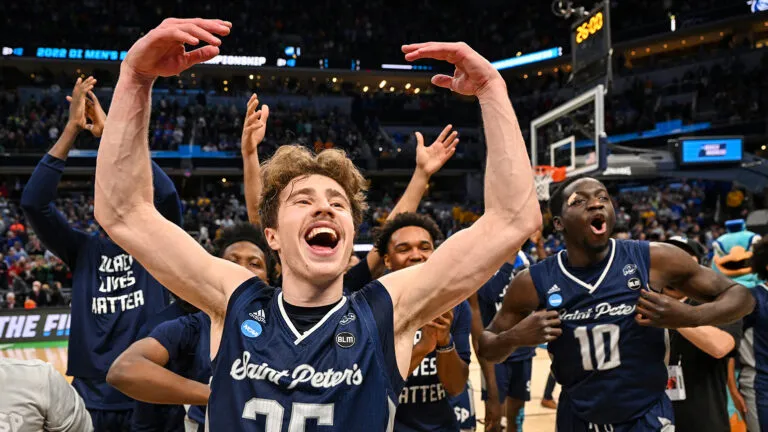The curse. The Boston Red Sox had no chance—no chance!—of ever winning the World Series because of the dreaded "Curse of the Bambino." The Sox had foolishly traded Babe Ruth to their bitter rivals, the New York Yankees, in 1920.
That's all I heard when the Red Sox hired me as their manager in November 2003. The team hadn't won a title since 1918. All because of the Curse.
Folks pointed to 1978, when the light-hitting Yankees shortstop Bucky Dent improbably slugged a game-winning home run to knock the Sox out of the playoffs. They talked of the ground ball that rolled, heartbreakingly, through first baseman Bill Buckner's legs, triggering the team's 1986 World Series defeat.
But I don't believe in curses, not even one that had tormented Red Sox Nation for 86 years. "To win we have to be loyal to each other," I told my players before the start of the 2004 season. "We have to have faith. We have to stay positive. We have to believe."
For six months they had. Now it was October, playoff time. The Red Sox were four victories away from reaching the 2004 World Series and a chance at winning the championship for the first time in nearly a century.
Millions of New Englanders—four generations' worth—were counting on us. All that stood in our way was a best-of-seven league championship series against, naturally, the Yankees, for the right to go to the Series.
What a time to play our worst baseball! We came off the field after Game Three at Fenway Park last October down three games to none. The Yanks had just hammered us 19–8.
The Boston fans were moaning. No playoff team in baseball history had come back from three such losses. I don't doubt some of the fans were thinking: the Curse!
The clubhouse was very quiet. Still, I had this funny feeling and thought, We can still win this thing. I eyed each and every one of the guys. "We've won 98 times this year," I said. "We're pretty good at it. Just win tomorrow and we'll be on our way."
If I'd said that to any other group of people I'd have been laughed out of the room. But looking at Kevin Millar, our first baseman; Manny Ramirez, our star outfielder; Johnny Damon, our leadoff hitter; and the rest, I could sense they believed too.
Professional athletes are trained to think positive. In our hugely competitive world it's the only way to succeed. You must believe. You must have faith.
I was proof of that, I suppose. The day the Montreal Expos selected me in the first round of the 1980 player draft, the last thing I thought I needed was more determination. All I'd ever wanted in life was to be a ballplayer.
My dad, Tito Francona, was a longtime major leaguer who once almost won the batting title. My final season at the University of Arizona I'd been named college player of the year. I figured I'd vault to the majors and tear up the league.
Sure enough, less than two years later I was playing left field for Montreal. I was on my way. Then in my fourth season I swung at a pitch and everything changed.
The ground ball was like a thousand others I'd hit. A high hopper up the first base line, an easy out. It was June 1984 and we were playing the Pittsburgh Pirates. The Pirates hurler raced from the mound and grabbed the ball. He reached to tag me and I ducked, trying to elude him. That's when I heard my left knee pop. I went down like I'd been shot. I knew right away it was bad. The guys had to help me off the field.
Why now? I thought, as they helped me to the dugout. I was 25 years old, leading the league with a .346 batting average, playing left field for a pennant contender. Then just like that I was done for the season.
I worked like crazy to rehab my knee. Hours and hours in the gym, all through fall and winter. By the start of the 1985 season I was back on the field. But something had changed. I wasn't hitting home runs, not driving runs in. I couldn't steal bases. I wasn't helping the team win. One day I checked the lineup. My name wasn't on it. I didn't have to ask why.
I was a 25-year-old benchwarmer. That was the worst. To be so young and have the game taken away. It just killed me.
I lived with a lot of frustration that year. I'd get home from a game and my wife, Jacque, would talk to me. She'd try to steer the conversation away from baseball. "Are your knees feeling better?" she'd ask.
I'd barely answer. Yeah, wins were what baseball was all about. But how had I contributed, sitting nine innings on the bench? I'd turn on the TV and stare at the screen, trying not to show my frustration.
I wasn't any happier at the ballpark. I'd get there early and run. I took extra infield practice. I worked out. Anything to get rid of my pent-up energy from not playing.
Baseball is a team sport, but a lot of stuff you have to figure out yourself. Our best player was Andre Dawson, our slugging all-star outfielder. Andre was a man of professional dedication, someone I admired. He had two damaged knees. Before each game he spent hours in the trainer's room getting treatment.
I was in there too. I watched what he went through daily in order to suit up and play. Reporters would ask him, "Why do you do it?" And he'd answer, "If you love it enough, you find a way."
Andre's words stuck with me. What do you really want? I thought. I tried to be realistic—not an easy thing to be when your ego is on the line. I was through as an everyday player. But I still loved baseball. What I wanted more than anything was to stay in the game.
Find a way, I told myself. So I did. I tried to become a valued pinch hitter. I played solid defense. Anything to contribute.
It wasn't enough. A few days before the start of the 1986 season the Montreal manager called me into his office. "I'm sorry," he said. "We're releasing you."
I was through at 26.
Everyone is tested in his own way, I thought. I chose to approach this as an opportunity: I could prove myself to a new team. I hooked on as a "utility player" with a succession of teams: the Chicago Cubs, the Cincinnati Reds, the Cleveland Indians, the Milwaukee Brewers.
I didn't allow a negative thought to enter my mind, even when each of those teams later released me. "A fresh opportunity," I'd tell Jacque. I found a way to stay in the game I loved, playing another five seasons despite not being able to run well and averaging just two home runs a year. I retired on my terms when I was ready to move into coaching.
I never doubted the power of positive thinking after that. Not even after my first experience managing in the majors, in Philadelphia. I was 37, a young, inexperienced leader running a young, inexperienced team. We took our lumps. Last place in 1997. A distant third in 1998 and 1999. Last again in 2000. Then I was fired.
Friends said they were sorry. I wasn't. I'd learned a lot. I'd worked out my philosophy for running a baseball team. How to manage and motivate players, confront pressure, make decisions, deal with the media. Most of all, how to handle adversity. And there's only one way—to treat it positively, as an opportunity.
I was ready in late 2003 when the Red Sox called. I may not have been the popular choice. The Red Sox were one of the best teams in baseball. The media and fans had expected the club to hire a proven winner. I was anything but.
The team got off to a slow start. The critics had a field day. They didn't like my laid-back approach. They didn't like that I gave the players a lot of freedom. They thought I'd lost control of the clubhouse. I just gritted my teeth.
Late one night after a tough loss the phone rang. It was John Henry, the team owner. "I want you to know I believe in you," he said. "I think we're going to be okay."
I fed the players the same kind of support Mr. Henry gave me. I believe in you. That is one of the most powerful things you can say to someone.
A few weeks later we made some key trades for infield help. A couple of injured players came back. We went on a roll, winning 16 of 17. We beat Anaheim in the first round of the playoffs.
And then we went down three games to none against the Yankees, and our faith, confidence and determination came into play. Everybody felt it. The guys didn't need any words from me the next night when they took the field. We played every pitch in those next four games like it was our last breath. Everyone on the team contributed. A stolen base. A key hit. A critical fielding play.
After the final out, after we'd won our fourth straight to defeat the Yankees and go to the World Series, we had such a feeling of release. I don't even remember how I got out onto the field. But I do remember guys telling me, "The Curse is dead!"
What curse? Two weeks later we beat the St. Louis Cardinals and became World Series champions for the first time since 1918.
Yes, 86 years is a long time to go between championships. I can see where it might prompt some superstition among fans, especially ones as long-suffering and seemingly snakebit as Red Sox fans.
But, I don't believe in curses. I believe in meeting adversity as a challenge and an opportunity. I believe in faith, self-confidence and determination. After all, look how far it got a benchwarmer like me.
Download your FREE positive thinking ebook!





